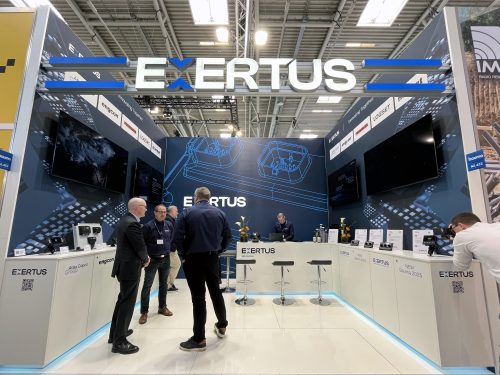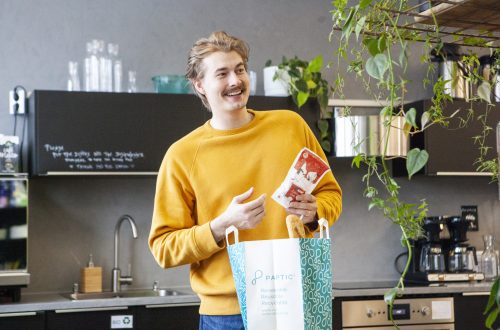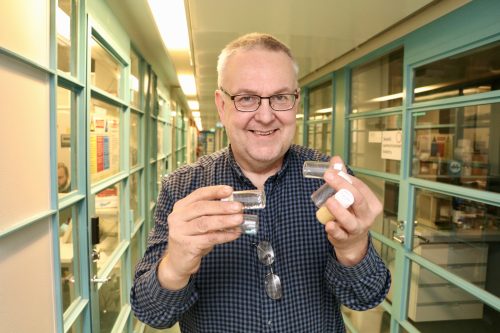-
Services
-
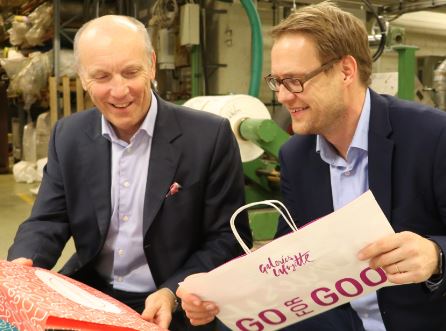
Paptic Oy has developed an alternative to plastic bags and packaging. A carefully managed patent portfolio creates a strong base for the growth of this startup company.
Reducing the use of plastics along with their environmental impact is a global effort that is gaining ground rapidly. Finland-based Paptic Oy has developed a wood-based material that can replace plastic, while combining the best properties of paper, plastic and fabric.
Paptic CEO and founder Tuomas Mustonen says the soft and textile-like product can aptly be called “paper fabric”.
“The key point about using a wood-based material is that a bag made from this material can be used multiple times – and it is also fully recyclable,” Mustonen notes.
Paptic’s revolutionary innovation has a solid scientific background. The product is based on years of research into foam forming at VTT Technical Research Centre of Finland. Foam forming technology enables the manufacturing of fiber-based products from pine or fir pulp in a highly efficient process that also helps conserve energy and water.
Packaging and the use of plastics are undergoing a major transformation around the world. For example, in many European countries the use of plastic bags is being limited, or consumers now need to pay for them.
“Shoppers are steering their habits into a more eco-friendly direction. People are increasingly aware of the environmental problems caused by plastics,” says Mustonen.
Paptic’s shopping bags have already been tested in stores. Potential customers include fashion, cosmetics and sporting goods chains that want to differentiate themselves with ecological, durable shopping bags.
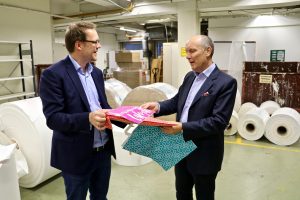
Tuomas and Christoffer examine the paper fabric. / Photo: Matti Remes
The material has also attracted strong attention internationally. For example, renowned French retail chain Galeries Lafayette uses Paptic’s shopping bags.
“Another application for our material is shipping envelopes for online sellers, which are currently made of plastic.”
Paptic is getting ready to ramp up its production to full industrial scale. According to Mustonen, this will be accomplished by converting an existing paper machine to produce the Paptic material.
“We are currently in negotiations with several partners, and expect the investment to be completed in 2020.”
Seppo Laine’s patent attorney Christoffer Sundman has followed Paptic’s journey closely, since he has helped the company draft its patent applications.
“As a patent attorney, it’s great to work with startup companies, since it gives an opportunity to really get into the technology and business of the client. One gets to know both sides of the company, and can see the connection between them,” Sundman says.
Paptic currently has five patents or pending patent applications for its products. Tuomas Mustonen notes that for all of the patents, the actual invention has developed to its final form during the patenting process. “Paptic is not a single product, but a material and product family. For this reason, our goal has been to protect the manufacturing technology and our products as comprehensively as possible.”
Mustonen is very happy with the coaching and consulting from Seppo Laine.
“We have collaborated with Seppo Laine Oy for a long time now, and we know that they have the top expertise in this field of technology. I also greatly value their strategic approach; it’s not only about protecting technology, but most of all about developing our future business.”
Mustonen says that for a startup such as Paptic, protecting the company’s technology is crucial. A well-managed IP portfolio enables even a small company to compete on an equal footing with major industry players.
“Protecting our own technology gives us the freedom to operate in our markets. In particular, our long-term goal is to license our technology alongside our own manufacturing operations. This means that we need strong protection for our IPR,” says Mustonen.
Christoffer Sundman is happy to bring his long IPR experience to support Paptic’s business growth. The collaboration has been a successful one on all counts.
“The best thing about this cooperation is the opportunity to work with such creative, energetic and passionate people,” says Sundman. “They approach their work with a can-do attitude that radiates to everyone around them. It has been great to see Paptic succeed in their demanding and competitive industry.”
Text: Matti Remes
